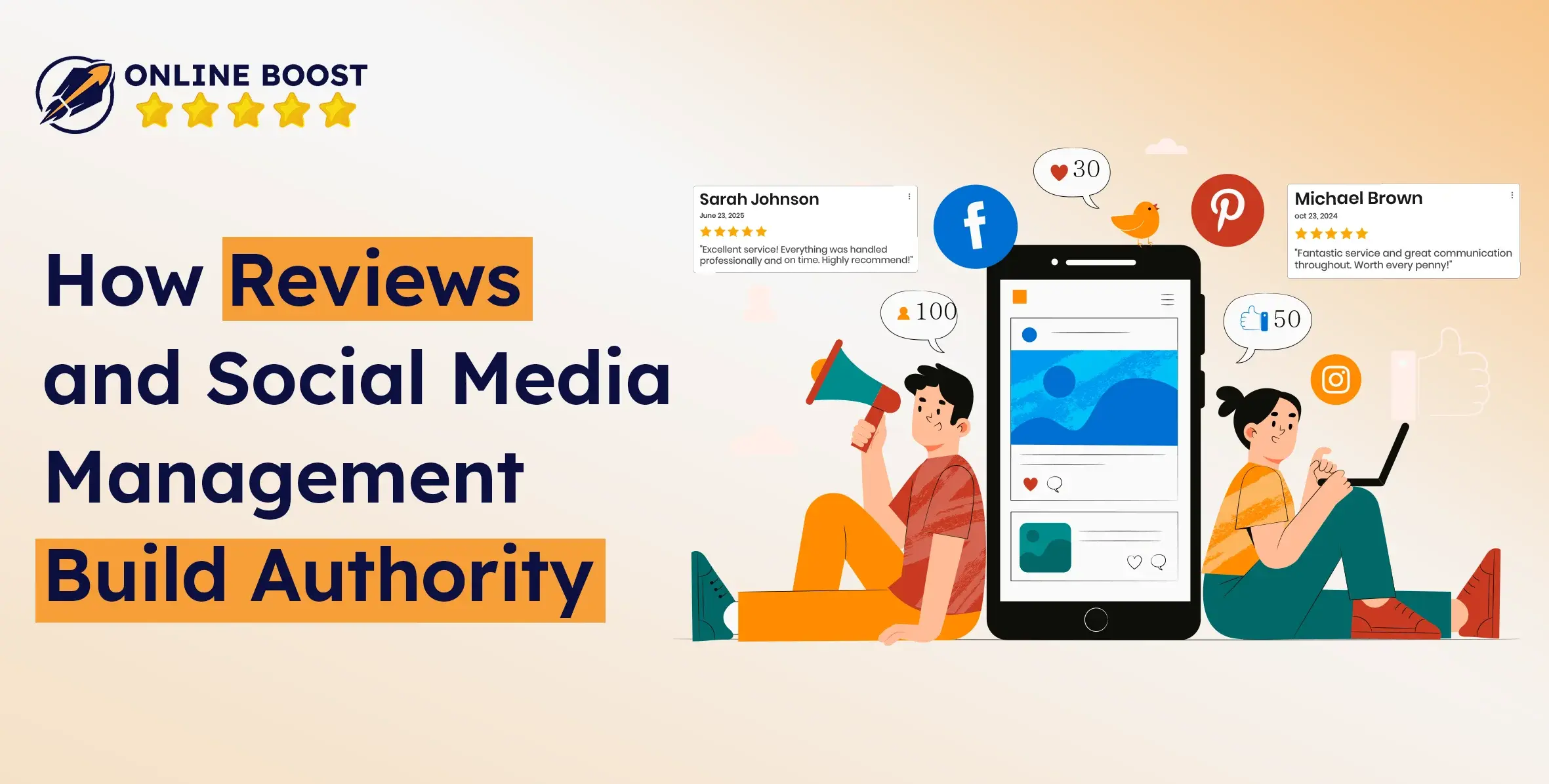
In 2026, businesses aren’t just competing for customers; they’re competing for attention, trust, and connection. And the bridge between all three is content writing.
You, us, and everyone else scroll through oceans of content every day. But what makes us stop? It’s not ads. It’s not slogans. It’s words that feel human, helpful, and honest.
That’s why content writing isn’t just about filling a blog page anymore; it's the foundation of how modern businesses communicate value in an overcrowded digital world.
According to recent studies, over 54% of businesses are increasing their content budgets, and 67% of marketers now rely on a defined content strategy to reach their audience.
Here’s the part many miss: people don’t buy products; they buy the stories and meanings those products represent. The brands winning in 2026 are the ones that know how to talk.
So, if you’ve been wondering why content writing is important for businesses in 2026, let’s talk about it.
The Changing Digital Landscape in 2026
Before we go deep, let’s look at what’s actually happening in 2026:
| 2026 Marketing Statistics | Source | Insight |
|---|---|---|
|
54.5% of businesses plan to increase content marketing budgets |
DemandSage (2026) |
Businesses are doubling down on written content. |
|
53% of website traffic still comes from organic search |
Power Digital Marketing (2026) |
SEO-driven business content writing remains dominant. |
|
67% of marketers use AI for writing assistance |
CMI (2026) |
AI helps, but human storytelling still wins trust. |
|
46% of B2B marketers expect budget growth |
Content Marketing Institute (2026) |
Companies are investing more in long-form content. |
What these numbers show is that the world runs on content. Whether you’re a small bakery or a tech startup, your words online decide if someone buys from you or scrolls past.
What Is Content Writing for Businesses?
Content writing is how a business communicates through words. It’s not just about filling a website or posting blogs. It’s about sharing useful information that helps people understand your brand and what you offer.
Here’s what it really means for businesses:
- It helps explain your products or services clearly.
- It builds trust by giving valuable and honest information.
- It connects your brand with the right audience.
- It supports your online visibility and helps people find you.
In simple terms, business content writing is how you turn your ideas into messages people can relate to. Whether it’s a blog, an email, or a website page, good writing makes your business feel real and approachable.
Why Content Writing Is Crucial for Business Growth
If you look at how businesses grow in 2026, one thing stands out: the ones that know how to communicate well always stay ahead.
Let’s discuss why it’s so crucial.
It Helps Your Business Get Found Online
No matter how great your product or service is, it means nothing if people can’t find you. That’s where content writing supports your visibility. Every blog, article, or webpage you create gives search engines more reasons to show your business to people searching for what you offer.
High-quality business content writing that uses the right keywords naturally improves your SEO. According to marketing data, more than 50% of website traffic still comes from organic search. This means good writing directly brings more visitors to your website.
It Builds Trust and Credibility
People buy from brands they trust. The importance of content writing lies in its ability to build that trust over time. When you share useful, well-written content, you position your business as a reliable source of information.
Every helpful article or guide you post shows your audience that you know what you’re talking about. Over time, they begin to see your brand as an expert in the field.
It Creates a Strong Brand Voice
Every business has a story, and content writing is how you tell it. Your words represent your brand’s personality. Whether your tone is friendly, professional, or inspiring, consistent writing helps people recognize and remember you.
It Supports Every Part of Digital Marketing
Content writing isn’t limited to blogs. It supports everything from social media to email campaigns and video scripts. Every digital marketing channel needs words that guide, inform, and persuade.
Without well-written content, your ads fall flat, your website feels empty, and your message gets lost. Writing ties all your marketing efforts together so they work in harmony.
It Drives Leads and Sales
At the end of the day, every business wants growth. And growth happens when content attracts the right audience and turns them into paying customers. That’s one of the biggest benefits of content writing for companies.
When your writing answers real questions, solves problems, and shows how your product helps, it naturally builds interest.
It Saves Money and Builds Long-Term Value
Paid ads stop the moment you stop paying. Content doesn’t. A single well-written blog can bring you traffic for years. That’s why investing in professional content writing services gives long-term returns.
In 2026, businesses that publish consistent, high-quality content report up to 3x more ROI compared to those focusing mainly on ads.
It Helps You Stay Competitive
Every business online is fighting for attention. When you create content that genuinely helps people, you automatically stand out. The right content marketing strategy makes sure your business stays visible even in crowded industries.
Key Content Writing Trends (What Has Changed in 2026)
The world of content has shifted a lot in just a few years. What worked in 2020 doesn’t always work in 2026. People read differently, search differently, and trust differently.
If businesses want to stay relevant, they need to understand what’s changing and how to adapt.
Here are the major content writing trends shaping 2026:
AI tools are common
In 2026, almost every marketer uses some form of AI to speed up writing and research. But while AI helps create drafts and collect data, it can’t replace the personal touch of human writing.
People can easily tell when content feels robotic. What works now is a mix of smart AI tools with genuine human editing.
Experience-based content is in demand
Readers don’t just want information; they want real experiences. The importance of content writing has grown because people now prefer advice backed by examples, results, and personal insight.
Case studies, expert opinions, and real success stories perform better than purely keyword-based articles.
Search intent matters more than keywords
Google has become smarter at understanding what users want. That’s why effective business content creation now focuses on search intent, not just keyword density.
Writers are creating content that answers real questions directly and quickly. The goal is to satisfy the reader first and the algorithm second.
Shorter attention spans need better structure
People no longer read word by word. They scan. That’s why structure matters more than ever. In 2026, the most successful content uses short paragraphs, subheadings, and bullet points that make reading easy.
Visual and interactive content support writing
Content is no longer just text. Businesses are pairing their writing with visuals, infographics, and interactive elements. These help break down complex ideas and keep readers engaged longer.
Refreshing old content is becoming a priority
In 2026, more businesses are re-optimizing old blogs with new statistics, examples, and keywords. Refreshing content not only improves rankings but also shows that your brand stays current and cares about accuracy.
How to Create Effective Business Content
The most successful brands this year are the ones that combine strategy with simplicity.
Here’s how to do it right:
Start with Understanding Your Audience
The first step in effective business content creation is knowing who you’re talking to. Before writing anything, take time to understand your audience’s needs, pain points, and goals.
Ask yourself:
- What problems are they trying to solve?
- What type of information do they look for?
- What tone will they respond to best?
When you understand your audience, your content naturally becomes more relevant, engaging, and human.
Focus on Solving Problems
Readers don’t come online to be sold to. They come to learn and find answers. Write content that helps before it sells.
Explain solutions clearly, give examples, and keep the focus on value. When people see that your content helps them, they’ll trust your business enough to buy later.
Write in a Simple and Conversational Tone
Businesses that sound too corporate or robotic lose attention fast. Use plain language, short sentences, and active voice.
Writing the way you speak builds a personal connection. It makes your audience feel like they’re talking to a real person, not a faceless brand.
Use Keywords Naturally
Keywords still matter, but not the way they used to. Instead of forcing them in, blend them naturally into your sentences. The goal is for your content to read smoothly while staying optimized for search engines.
Use your primary keyword and related secondary keywords where they fit logically. This approach helps your content stay visible while keeping it easy to read.
Create a Strong Structure
Even great ideas can lose readers if the structure is messy. A good content writing structure keeps things organized and easy to follow.
Here’s a simple structure that works well:
- Headline: Catch attention and promise value.
- Introduction: Explain what readers will learn.
- Body: Share main points clearly with subheadings.
- Conclusion: Summarize and add a soft call to action.
Add Real Data and Examples
Use reliable data, statistics, and short examples to back up what you’re saying. This strengthens your credibility and makes your content more believable.
For example, businesses that post helpful blogs consistently get up to 68% more leads than those that don’t (HubSpot, 2026). Facts like this build confidence in your readers’ minds.
Refresh and Repurpose Your Content
Good content keeps working long after it’s published. Keep an eye on older posts and update them with new stats or insights every few months. This keeps your brand relevant and improves your SEO.
You can also repurpose one strong article into multiple formats, like short social posts, videos, or newsletters.
Focus on Quality Over Quantity
Publishing a lot doesn’t mean growing fast. One detailed, high-quality piece often performs better than ten short ones. Take time to research, write clearly, and polish your work.
How to Measure the Success of Your Content Writing
Creating great content is only half the work. The other half is knowing if it’s actually helping your business grow.
Here’s how to measure the growth effectively:
Track Website Traffic and Engagement
Start with the basics. Look at how many people visit your pages, how long they stay, and which articles get the most attention.
Key metrics to track:
- Page views: Show how much interest your content attracts.
- Average time on page: Reveals if people are actually reading your content.
- Bounce rate: A high bounce rate may mean your content isn’t engaging enough.
Monitor Keyword Rankings
One of the biggest benefits of content writing for companies is improved visibility in search engines. Track how your target keywords are performing. If your blogs and pages start appearing higher in search results, your SEO strategy is working.
Use tools like Google Search Console or SEMrush to see which keywords bring visitors to your site and which ones need more focus.
Analyze Lead Generation and Conversions
Content should not only attract readers but also help turn them into leads and customers. Check how many people take the next step after reading.
You can measure this by:
- Tracking conversion rates on blog pages.
- Monitoring call-to-action clicks.
- Reviewing form submissions and downloads.
Evaluate User Interaction and Feedback
Success is not only in numbers. Sometimes, your audience will tell you directly what they think. Look at comments, email replies, and social media mentions.
Positive feedback, shares, and discussions around your content show that people find it valuable.
Measure Return on Investment (ROI)
ROI tells you how much value your content creates compared to what you spend on it. According to industry reports, consistent content writing can generate up to 3x higher ROI than paid ads.
To measure ROI, look at:
- The cost of creating and promoting your content.
- The revenue or leads generated from that content.
- Long-term benefits, such as ongoing traffic from evergreen articles.
Check Content Retention and Repeat Visits
If people return to your site for more information, it means your writing left a good impression. Track how often returning visitors engage with your new posts. It’s a sign of trust.
Common Mistakes Businesses Should Avoid
Even though most businesses understand the value of content writing, a few common mistakes still prevent them from getting real results.
Writing Without a Clear Goal
One of the biggest mistakes is writing just to fill space. Every piece of content should have a purpose. When you write without direction, your message becomes unclear, and readers lose interest quickly.
Forgetting About the Audience
Your content should always focus on what your audience needs, not just what your business wants to say. The best business content writing answers real questions, speaks in the reader’s language, and provides genuine value.
Forcing Too Many Keywords
Using keywords is important for visibility, but forcing them into every line makes the writing awkward. Search engines now understand context better than ever.
Ignoring SEO Essentials
Great writing alone won’t help if no one finds it. Basic SEO steps like writing clear meta descriptions, adding internal links, and optimizing headings make a big difference.
Publishing Without Consistency
Posting one good article and then going silent for months can make your audience forget you. Consistency builds recognition and trust.
Skipping the Editing Process
Many businesses rush to publish without reviewing what they’ve written. A few typos or unclear sentences might seem minor, but they can hurt your credibility. Take time to edit.
Sounding Too Corporate or Robotic
Readers want to feel like they’re talking to a real person, not a brand manual. Using overly formal or robotic language makes your content forgettable.
Future of Content Writing Beyond 2026
If there’s one thing we can already see, it’s that content writing isn’t slowing down. It’s changing, adapting, and becoming even more essential for businesses that want to grow in the years ahead.
Here’s what the future of content writing looks like in the coming years:
Writing will focus more on experience and authenticity
Search engines are getting better at identifying content that feels human and valuable. Generic, surface-level writing is losing its place. The future belongs to brands that share real stories, unique insights, and honest perspectives.
AI will be a tool, not a replacement
AI tools are here to stay, but they won’t replace human creativity. They’ll support research, outlines, and structure, while writers bring the human element that builds emotional connection.
The businesses that find the right balance between automation and creativity will see the best results.
Voice search and conversational content will grow
As more people use smart speakers and voice assistants, writing will need to match how people speak. Conversational content will become the new standard.
Interactive and multimedia content will be the key
The future of content marketing will blend written words with visuals, videos, and interactive formats. Businesses will turn their articles into dynamic experiences that engage readers instead of just informing them.
Trust and transparency will matter more than ever
In a time when AI can generate content instantly, authenticity will be a competitive advantage. Readers will value transparency and originality over speed.








































